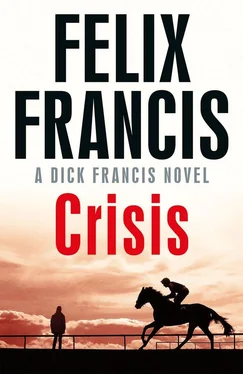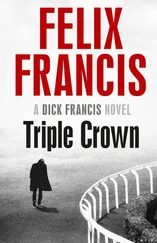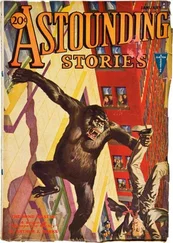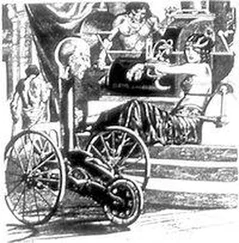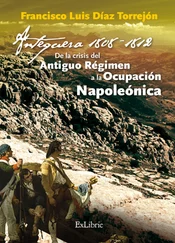But Oliver had clearly been busy in other ways as well. The brief stated that he’d been married three times and he’d had two children with each of his first two wives — three sons and a daughter in all. Of the four, the three boys were still active participants in the racing industry.
Ryan, the eldest at forty-two, had been a two-time former champion jockey who had ridden many of Oliver Chadwick’s greatest training triumphs, including winners of the Derby, Oaks, St Leger and the Breeders’ Cup, before retiring from the saddle through injury and taking over Castleton House Stables from his father.
Declan, the second son by two years, had also been a very successful but not quite a champion jockey before following Ryan’s move into training. He currently ran a small yard on the outskirts of Newmarket and was just starting to make his mark as a possible star of the future.
Next by age, at thirty-two, was Tony and he was the only one of Oliver Chadwick’s offspring who was not married. He was still riding as a jockey, although he had never reached the dizzy heights of either of his older brothers, although, according to my newspaper, he had been widely expected to partner Prince of Troy in the forthcoming Derby.
The youngest, at twenty-nine, was Zoe, the only Chadwick daughter. Even though her married name was Robertson, she apparently sometimes referred to herself as Zoe Chadwick. She had moved away from Newmarket to London aged just eighteen, got married at twenty, and now lived with her husband and two young children close to South Ealing tube station.
Georgina had made a note in the brief that Zoe’s husband was called Peter and he was believed to be an estate agent, but lack of time had prevented anything further from our in-house researchers.
I leaned back in my train seat and watched the world rush by at a hundred miles per hour. I actually thought that the research team had done remarkably well in the very short period available, but what the brief failed to tell me was that inter-sibling civil war had broken out big time in the Chadwick family.
I would only find that out when I arrived at Newmarket.
Bury Road was closed in both directions, blocked by three large red fire engines from which snaked big fat hoses full of high-pressure water. In addition there were two television news vans with large satellite dishes open on their roofs. Camera crews and presenters milled around aimlessly, waiting, no doubt, for the next news bulletin and another report.
The driver that Georgina had arranged to collect me from Cambridge Station dropped me as close as he could get to the gates of Castleton House Stables. He jumped out first and opened the rear door of his smart black Mercedes and waited for me to emerge.
‘I’ll try and wait for you here, sir,’ he said. ‘If they move me on, I’ll park somewhere close by.’
‘Right,’ I said. ‘Thank you. I’ll call you when I need you. But I have no idea how long I’ll be.’
‘I’ll be waiting,’ said the driver. ‘Be as long as you like. I’ve got a good book to read. You can leave your bag in the boot if you want.’
‘Yes, I will,’ I said. ‘Thanks.’
I picked up the newspaper, checked I had my mobile phone with me, and stepped out of the car.
I was immediately struck by a strong smell of burning — not the sweet aroma of a garden bonfire but the acrid stench of burned flesh that bit painfully into my throat almost causing me to retch.
I’d done fires before and I hated them.
There was something indiscriminate and random about their nature, and so absolute in their destruction. In a flood, one can always dry out precious family photographs or works of art. Damaged they may be, but recognisable nevertheless. But in a fire, they are cruelly gone forever.
And, mostly, fires are accidental or the result of acts of God — a lightning strike, an electrical malfunction or a spitting hearth. No one meant them to happen, yet the urge to blame someone for one’s misfortune is inbuilt in the human psyche. Why didn’t someone spot the flames sooner? Why didn’t the fire brigade get here quicker? Why did someone build a faulty heater? Why us? Why? Why? Why?
It is no surprise that anger is the overriding emotion and victims lash out at any form of authority. The need to hold someone to account is very strong. Residents of fire-ravaged Grenfell Tower in west London loudly demanded justice, as if finding a scapegoat would somehow return their friends and relatives to life, restore their belongings and make everything well again.
And I didn’t criticise them for doing so. I would have done exactly the same in their position.
It is as if someone has burgled one’s house and removed all that one holds dear, except it is worse than that. At least after a burglary there is a focus for one’s anger, individuals to blame, and a forlorn hope that lost items may be recovered. After a fire there is nothing but total despair.
Presuming, of course, that the fire was an accident.
I walked in through the high gates of Castleton House Stables and was immediately confronted by a young uniformed policeman standing just inside.
‘Can I help you, sir?’ he asked.
‘I’m looking for Oliver Chadwick.’
‘Why? Are you press?’
‘No,’ I replied. ‘I’m Harry Foster.’ I handed him one of my business cards. ‘I am expected.’
‘Wait here,’ he ordered, and then walked off towards a pair of uniformed senior police officers who were standing near the big house to my left.
Even from this vantage point, it was easy to see from where the smell of burning emanated. Wisps of smoke were still rising from the burned-out remains of what had clearly once been a stable block identical to two others that were still standing, and all around me the ground was covered by a layer of ash like black snowflakes, blowing in the wind.
The three blocks, together with the big house, had formed the four sides of a square around a central quadrangle. There was a wide walkway along the front of each building and an immaculately tended lawn in the middle, bordered by a row of bright spring flowers, their pinks, greens and reds in sharp contrast to the pristine white walls and grey slate roofs of the stable blocks.
Beautiful.
Except that, on the far side of the square from where I was standing, the white walls were now fire-blackened and the tile roof completely gone. One of the stable blocks was nothing more than a shell, a few remaining charred roof timbers pointing heavenwards as if in some form of accusation towards God for allowing such a tragedy to occur.
To my right, sitting on the ground and leaning up against the wall of the nearest untouched block, were five firemen, their yellow helmets off and their heavy fireproof tunics open. I smiled down at them and received nothing but grimaces in reply. They were clearly exhausted, the sweat still standing out in huge droplets on their faces.
‘Well done,’ I said to them.
‘Those poor horses,’ one of them replied, shaking his head. ‘Nothing we could do.’
‘At least you saved the other stables,’ I said, pointing at the untouched buildings. ‘And the house.’
Indeed, I could see other firemen still hosing down the side of the house to ensure it didn’t ignite from the heat even now radiating from the epicentre of the disaster.
The young policeman returned, and, it seemed, he had been given the thumbs-up from his superiors for me to enter the premises.
‘They’re in the kitchen,’ he said. ‘That door there.’ He pointed.
‘Who are they ?’ I asked.
‘The whole lot of them. The family, that is.’
His tone implied he was not a fan but at least he kept his tongue civil.
Georgina’s brief had indicated that, even though Ryan had taken over the training of the horses in the stables, his father still occupied the house, Ryan and his wife having remained in the modern home on the Fordham Road that they had built in the year he was first champion jockey.
Читать дальше
